| Article ID | Journal | Published Year | Pages | File Type |
|---|---|---|---|---|
| 2011758 | Pharmacological Reports | 2009 | 9 Pages |
The endocannabinoid system is a crucial player in the inflammatory processes underlying atherosclerosis. Recently, basic research studies and animal models have strongly supported the role of the endocannabinoid system not only in the regulation of classical cardiovascular risk factors (including lipid profile and glucose homeostasis), but also in the activation of immune cells and inflammatory mediators. Clinical trials investigating treatment with rimonabant (a selective antagonist of the cannabinoid type 1 receptor) have suggested a beneficial effect of this drug in the management of obesity. Further studies are needed to explore a possible use for rimonabant in treating type 2 diabetes and acute and chronic cardiovascular disease. Despite the slight increase in adverse events (mainly psychiatric), which has led to the recent withdrawal of rimonabant from the market, CB1 receptor antagonism might represent a very promising therapeutic strategy to reduce the cardiovascular risk. In the present review, we focused on the most important experimental investigations into the role of the endocannabinoid system in atherosclerosis and cardiovascular risk.
